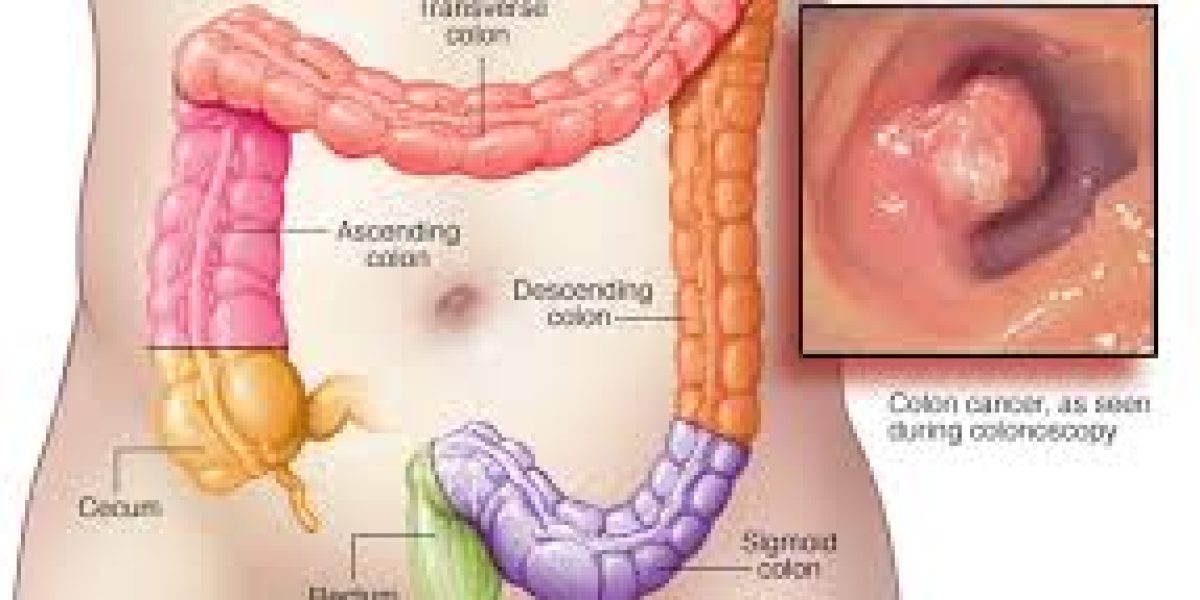Colon cancer is a serious condition that affects millions of people worldwide. For some, like Raquel, a busy professional and mother of two, the symptoms of colon cancer initially seemed like minor inconveniences. But these seemingly small issues soon grew into something more serious. By sharing Raquel’s story, we can shed light on the importance of recognizing colon cancer symptoms early, understanding the risk factors, and taking preventive measures. This knowledge may help others avoid a delayed diagnosis and improve their chances of successful treatment.
1. Initial Symptoms: The Subtle Signs
Raquel’s symptoms started as what she thought were minor digestive issues. She began noticing changes in her bowel habits — something many people might not immediately associate with a serious illness. However, in hindsight, these early changes were the first signs of a problem.
- Changes in Bowel Habits: One of the earliest symptoms Raquel noticed was a change in her bowel movements. She would alternate between constipation and diarrhea, often struggling to find a “normal” pattern. Colon cancer can affect how stool moves through the large intestine, causing these fluctuations in bowel habits.
- Narrow Stools: Raquel started to notice her stool had become narrower than usual, a condition sometimes referred to as “pencil-thin stools.” This symptom is often overlooked, but it can indicate that something is obstructing the colon, like a tumor. If you notice a change in the shape or size of your stool, especially if it persists, it’s worth discussing with your doctor.
2. Unexplained Weight Loss
Like many people juggling multiple responsibilities, Raquel wasn’t overly concerned when she started to lose weight. However, unexplained weight loss can be a symptom of colon cancer. Cancer cells consume a lot of energy, and the body may also produce hormones in response to the tumor, which increases metabolism and burns more calories. If you or someone you know is losing weight without trying, especially alongside other symptoms, it’s wise to consult a healthcare provider.
3. Fatigue and Weakness
Raquel began experiencing fatigue that didn’t go away with rest. She initially thought it was due to her busy schedule and family responsibilities, but the fatigue grew worse over time. Fatigue in colon cancer can be due to blood loss from bleeding in the colon, which causes anemia (a deficiency of red blood cells). This blood loss is often gradual, making it difficult to detect without a blood test, but it can lead to chronic fatigue and weakness that doesn’t improve with sleep or rest.
4. Abdominal Pain and Cramping
Abdominal discomfort became a more frequent issue for Raquel. She experienced cramping and pain, especially on the left side of her abdomen. In colon cancer, tumors can cause blockages or partially obstruct the colon, leading to pain and cramping. Raquel’s pain was initially mild, but as her symptoms worsened, it became more difficult to ignore. Persistent abdominal pain or discomfort is a symptom that should never be ignored, as it can indicate various health issues, including colon cancer.
5. Blood in Stool
One of the most alarming symptoms Raquel experienced was finding blood in her stool. Blood in stool can appear as bright red streaks or make the stool appear dark and tarry. In Raquel’s case, the blood was often only faintly visible, and sometimes she would go days without seeing any at all. However, even small amounts of blood in the stool can indicate a serious issue. Blood in stool is one of the most recognized symptoms of colon cancer, though it can also result from conditions like hemorrhoids. It’s essential to consult a healthcare professional if you notice any form of blood in your stool.
Understanding Risk Factors for Colon Cancer
While colon cancer can affect anyone, certain risk factors can increase the likelihood of developing the disease:
- Age: Most cases of colon cancer are diagnosed in people over the age of 50. However, cases in younger individuals are on the rise. It’s essential to stay vigilant regardless of age.
- Family History: A family history of colon cancer or polyps increases an individual’s risk, as genetics can play a significant role in cancer susceptibility.
- Lifestyle Factors: Unhealthy lifestyle choices such as a diet high in red and processed meats, smoking, alcohol consumption, and physical inactivity can all increase the risk of colon cancer.
- Chronic Conditions: Conditions like inflammatory bowel disease (IBD), which includes Crohn’s disease and ulcerative colitis, can also increase the risk.
For Raquel, her family history of colon cancer added to her susceptibility, something she only realized after her diagnosis.
Importance of Early Screening
Regular screening can help detect colon cancer early, even before symptoms appear. Colonoscopies are the most effective screening method, allowing doctors to view the colon and detect polyps or tumors. While the idea of a colonoscopy can be intimidating, the procedure is typically painless and can save lives by catching cancer at an early, more treatable stage.
Screening guidelines recommend that adults at average risk start getting colonoscopies at age 45, but those with risk factors, like a family history of colon cancer, may need to start earlier. There are also non-invasive screening options like stool DNA tests that can be done at home, though they are not as comprehensive as a colonoscopy.
Raquel’s Treatment Journey
After experiencing symptoms for several months, Raquel finally consulted her doctor, who ordered a series of tests, including a colonoscopy. Unfortunately, the results confirmed that she had colon cancer. Her journey through diagnosis, treatment, and recovery wasn’t easy, but early intervention made a significant difference in her prognosis.
Raquel’s treatment included surgery to remove the tumor, followed by chemotherapy. She also made significant lifestyle changes, incorporating a healthier diet and regular exercise into her routine, both of which were recommended to support her recovery and reduce the risk of recurrence.
How to Reduce Your Risk
Colon cancer is largely preventable with lifestyle modifications and regular screening. Here are some ways to lower your risk:
- Healthy Diet: A diet rich in fruits, vegetables, whole grains, and lean proteins can lower your risk. Limiting red and processed meats and avoiding sugary, processed foods is also beneficial.
- Regular Exercise: Physical activity helps maintain a healthy weight, reducing the risk of colon cancer and many other health issues.
- Quit Smoking and Limit Alcohol: Smoking and excessive alcohol consumption are risk factors for colon cancer. Quitting smoking and drinking alcohol in moderation can help lower the risk.
- Screening: As mentioned earlier, screening is crucial for early detection. Colonoscopies and other screening methods can catch cancer before symptoms develop, improving survival rates significantly.
- Know Your Family History: Understanding your family history can help you and your healthcare provider make informed decisions about screening and lifestyle choices.
Key Takeaways
Raquel’s journey with colon cancer emphasizes the importance of being attentive to your body’s signals. Early symptoms of colon cancer, like changes in bowel habits, unexplained weight loss, fatigue, abdominal pain, and blood in stool, should never be ignored. These symptoms are not unique to colon cancer and could indicate other conditions, but they still warrant medical attention.
Regular screenings, a healthy lifestyle, and awareness of family history can all contribute to lowering the risk of colon cancer. Raquel’s experience serves as a powerful reminder to take preventive measures, seek timely medical advice, and advocate for one’s health. Colon cancer is often treatable, especially when caught early, and by staying informed, we can all take steps toward a healthier future.
Final Thoughts
For anyone experiencing similar symptoms, it’s essential not to ignore them. Colon cancer might be a scary diagnosis, but with early detection and the right treatment, the chances of recovery are significantly improved. If Raquel’s story resonates with you, don’t hesitate to consult a healthcare provider. Remember, taking control of your health today can make a big difference in the future.












